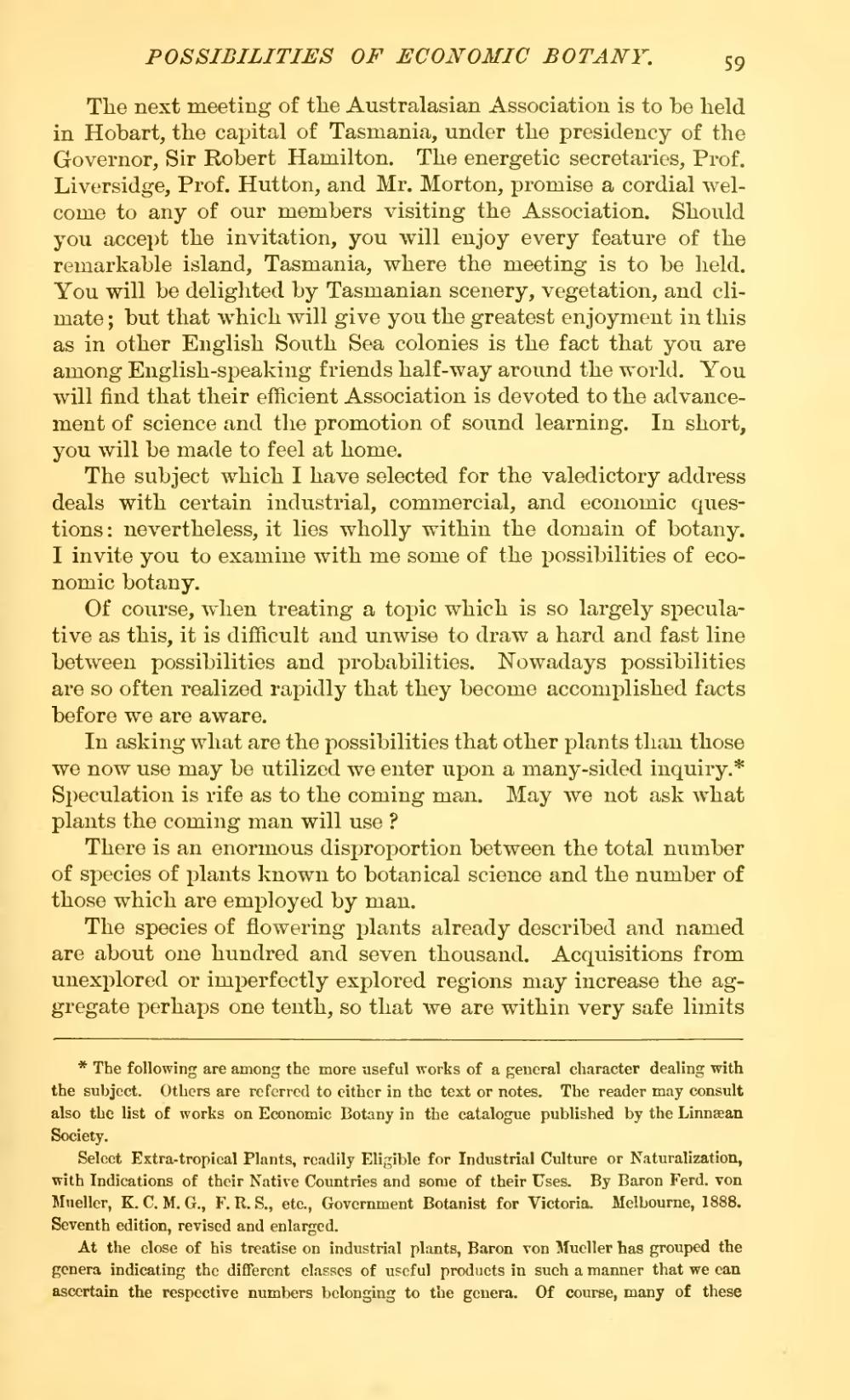The next meeting of the Australasian Association is to be held in Hobart, the capital of Tasmania, under the presidency of the Governor, Sir Robert Hamilton. The energetic secretaries. Prof. Liversidge, Prof. Hutton, and Mr. Morton, promise a cordial welcome to any of our members visiting the Association. Should you accept the invitation, you will enjoy every feature of the remarkable island, Tasmania, where the meeting is to be held. You will be delighted by Tasmanian scenery, vegetation, and climate; but that which will give you the greatest enjoyment in this as in other English South Sea colonies is the fact that you are among English-speaking friends half-way around the world. You will find that their efficient Association is devoted to the advancement of science and the promotion of sound learning. In short, you will be made to feel at home.
The subject which I have selected for the valedictory address deals with certain industrial, commercial, and economic questions: nevertheless, it lies wholly within the domain of botany. I invite you to examine with me some of the possibilities of economic botany.
Of course, when treating a topic which is so largely speculative as this, it is difficult and unwise to draw a hard and fast line between possibilities and probabilities. Nowadays possibilities are so often realized rapidly that they become accomplished facts before we are aware.
In asking what are the possibilities that other plants than those we now use may be utilized we enter upon a many-sided inquiry.[1] Speculation is rife as to the coming man. May we not ask what plants the coming man will use?
There is an enormous disproportion between the total number of species of plants known to botanical science and the number of those which are employed by man.
The species of flowering plants already described and named are about one hundred and seven thousand. Acquisitions from unexplored or imperfectly explored regions may increase the aggregate perhaps one tenth, so that we are within very safe limits
- ↑ The following are among the more useful works of a general character dealing with the subject. Others are referred to either in the text or notes. The reader may consult also the list of works on Economic Botany in the catalogue published by the Linnæan Society.
Select Extra-tropical Plants, readily Eligible for Industrial Culture or Naturalization, with Indications of their Native Countries and some of their Uses. By Baron Ferd. von Mueller, K.C.M.G., F.R.S., etc., Government Botanist for Victoria. Melbourne, 1888. Seventh edition, revised and enlarged.
At the close of his treatise on industrial plants. Baron von Mueller has grouped the genera indicating the different classes of useful products in such a manner that we can ascertain the respective numbers belonging to the genera. Of course, many of these

